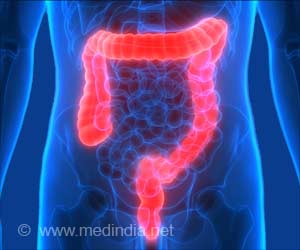An analysis of how two different proteins interact with one another to enable self destruction of kidney cells when there is an reduced oxygen supply to the tissue may eventually pave way for improved treatment modalities to manage ischemic renal failure.
Such self-destruction of the kidney can be activated during dehydration, low blood pressure, injury to the kidney, removal of kidney during kidney transplantation and septic shock, all of which result in a temporary reduction or halt of blood and oxygen supply.Ischemia, or reduced oxygen supply can trigger apopotosis or programmed cell death, more specifically in the tubular cells of the kidney that consume most of the energy. Ischemic kidney failure has been associated with a 50% mortality. Despite improvements in the medical field, it has not been possible to reduce this mortality rate associated with the disease, over the years.
Tubular cells are loaded with the task of reabsorbtion of nearly 50 gallons of fluid, in addition to substances such as salt and glucose, in a short span of 24 hours. These cells, therefore consume a high amount of energy and are highly susceptible to apoptosis and injury. In a oxygen starved state, two killer proteins termed Bid and Bax get activated and establish a partnership to induce cell death. This system is highly active in the kidney.
A $1 million grant has been sanctioned by the National Institute of Diabetes & Digestive & Kidney Diseases to the research group to better understand the role of these proteins in causing ischemic renal failure.
While it is known that during ischemic renal injury, the protein Bid is cleaved, followed by release of active fragments. It is not exactly known what causes the protein to cleave and move from its usual place outside the cell to mitochondria which is loacted inside the cell membrane. Cleavage of Bid yields a truncated Bid product (tBid) that may interact with Bax to produce a change in the protein structure.
This may further failitate the movemet of the Bax protein inside the mitochondria. Once inside, the protein can inhibit the respiratory function of the mitochondria, which is the main source of oxygen to the cells. The researchers believe that Bid and Bax exibit a synergistic activity to promote apoptosis or cell death. Without Bid, there is less apoptosis while kidney function and survival rates significantly improve. In addition, there is also an enhanced cell regeneration, paving way for ischemic recovery.
Advertisement
'We want to see how the drug can kill kidney cells and if we can find a protective mechanism to prevent kidney cell death without stopping cancer cell death,' says Dr. Dong, one of the senoir researchers involved in the study.
Advertisement











